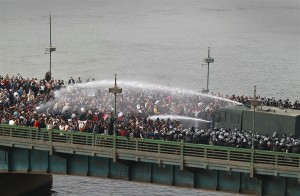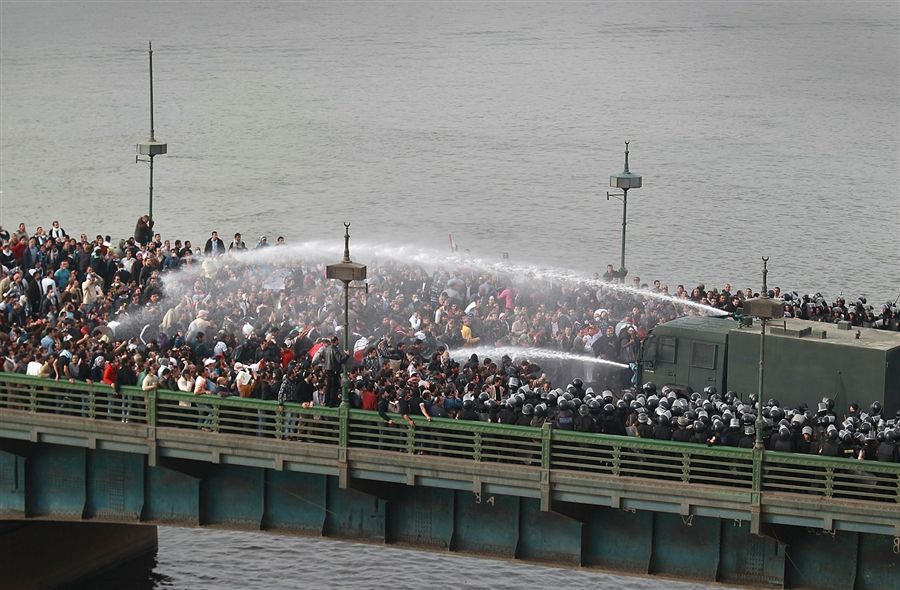
(AFP File Photo / Peter Macdiarmid)
The Appeals Court accepted Saturday the appeal presented by the General Prosecution challenging the acquittal of the Al-Zawya Al-Hamra police officer accused of killing protesters.
The court will look into the case next October.
Mohamed Ibrahim Abdel Moneim, commonly known as Mohamed El-Sunni, was a police officer in the Al-Zawya Al-Hamra neighbourhood during the 25 January Revolution.
After 2011, El-Sunni was sentenced to life in absentia. He then turned himself in and the sentence was mitigated to five years imprisonment in a maximum security prison.
He later appealed the sentence and a retrial was ordered, where he was acquitted in February 2014 from charges of participating in the killing of 18 protesters and injuring three others on 28 January 2011, during the 18-day uprising against former president Mubarak.
However, his acquittal was challenged by the prosecution.
His lawyer has stated that he was near the entrance of the police station when his colleague, Abdullah Mohamed, was killed by protesters; thugs were attempting to enter the station to steal weapons, and thus the defendant was defending himself and the police station.
He added that El-Sunni had fired shots into the air to disperse the protesters, and did not shoot at them intentionally.
Riot police waged a fierce crackdown on protesters during the 25 January Revolution, leaving a thousand deaths and many thousands missing.
The killings took place on 28 January 2011, the deadliest day of the uprising. On the same day, thousands of convicts escaped from prisons across the nation, and scores of police station were ransacked. The attackers made off with firearms and ammunition.
Several fact-finding committees were formed to find the truth on who gave the orders and who carried out the killings, yet none of them have born any fruit. The latest of these was a committee appointed by former president Mohamed Morsi in July 2012, tasked with reviewing the investigations and trials of the 200 accused officials. As with previous committees, no results have been announced as yet.
Many security officials around Egypt faced charges of killing protesters during the revolution. However, almost all were acquitted for lack of evidence, and due to the argument of “self defence”.


